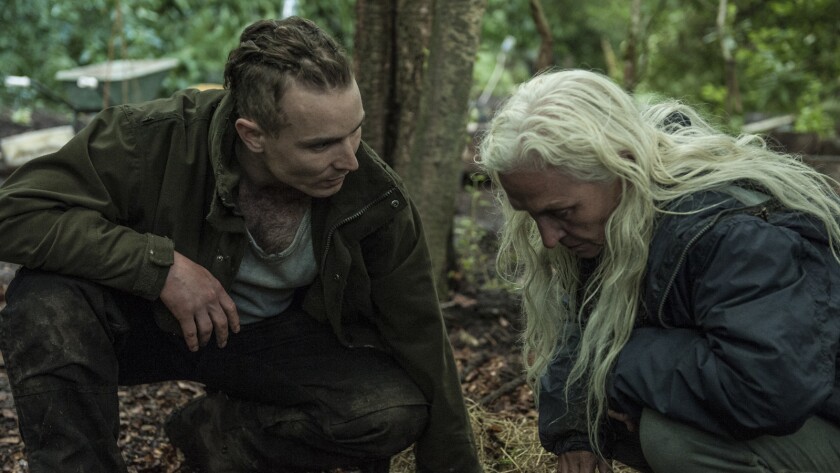So it’s been a long time since I’ve done one of these posts. I was going to write one over spring break and then the apocalypse happened.
Sitting alone in my house all day, I am shocked by how difficult it has become to get simple tasks done. I leave the house exactly one time every other day to go on a run. I try not to think about my friends too often, especially the ones living in and around New York City, as my fear for their safety is compounded by my missing them dearly. I miss the safety and quaintness of collegiate life, which I will never experience again. These thoughts have returned me to a depressed stupor. I was having my best semester ever at Bowdoin; loving my classes, loving my friends, and just being happy. Now, it’s hard to find any motivation to do anything. It’s a struggle to get out of bed in the morning.
But everyone has had to sacrifice something now. Having been stripped of the final months of an unmatched college education is only a condition of having received that education in the first place. I am extremely fortunate.
Accordingly, my family and I have taken a recent interest in apocalyptic science fiction. In doing so, we have watched three excellent movies, which I will review now:
Contagion (2011), dir. Steven Soderbergh
I feel like this is the quintessential pandemic movie now. After “Tiger King,” I bet this is the most-watched thing nowadays. Nevertheless, there’s a lot to break down in this movie
The disturbing thing about Contagion is just how freaking realistic it is. It’s a bleak, sad movie which was marketed as a thriller when it came out in 2011. The characters are sympathetic, relatable, or just realistic. For example, Jude Law plays the conspiracy theorist who exploits the situation for his own gain by promoting a bullshit homeopathic solution. People desperate for help still follow him devotedly. I feel like it’s only a matter of time until we see a profiteer like Law’s character come about.

Matt Damon’s character tries to escape his home in Minneapolis, but faces more extreme “stay in home” orders
Also relatable in this movie is Matt Damon’s teenage daughter, who is constantly tempted to kindle her relationship with her boyfriend. With social distancing, the loneliness that she faces feels extremely relatable. I have just three people with whom I have face to face conversations now: my mother, my father, my brother. It’s challenging to maintain these relationships and stay cool even together, but it’s harder to build relationships with those you don’t live with. Several of my friends live just down the highway and we can’t even see each other.
The final part of this movie that I see a lot of parallels to reality with is Kate Winslet’s character. I’m struck by the bravery of medical professionals who are putting their safety and the safety of their loved ones on the line to protect us. Bravo to them.
28 Weeks Later (2007), dir. Juan Carlos Fresnadillo
This film, the sequel to Danny Boyle’s 2003 smash hit 28 Days Later, gives a really good refresh on the whole overplayed zombie movie genre. While completely unrealistic, it is definitely a much more realistic zombie movie, at least over goofy takes like World War Z.
What’s interesting about this movie is it is mostly concerned about the fallout of a zombie apocalypse in Britain. Following the events of its prequel, where humans were turned into zombie-like beasts, the movie begins with NATO-led efforts to repopulate England. By now, most of these zombie things have died due to starvation. However, the damage is done. It gives a good sense of how much these people have lost. The father in the movie is constantly haunted by his betrayal of his wife, as he left her behind in a swarmed shelter at the beginning of the movie. His children are stunned by her loss and struggle deeply. I see some of this anger and confusion in the world right now, as our lives have been completely upended and we are struggling significantly to just get by and return to some sense of normalcy.
The film’s realism, at the end, is established by the realism of its characters. More often than not, these characters make dumb decisions, and are actually frequently unlikeable. However, most people are frequently unlikeable in the real world, and the film is not afraid to display these characters’ traits. For example, the father figure in the film commits two extraordinary sins that propels much of the movie’s action: he betrays his wife and leaves her for dead, but when she is found alive (as a carrier for the disease), he kisses her, contracting it himself. This unleashes the new outbreak and reignites/spreads the pandemic. At the conclusion of the film, an American soldier insists that the father’s two children (one of them a carrier for the disease) be taken to mainland Europe, or they would otherwise face execution. It is implied that this results in an outbreak in France and beyond in a post-credits scene.
In times of disaster, we always think that we will make the right decisions. We will be just and unselfish. However, we have no idea how we will act when put under extreme stress. I think Fresnadillo and Boyle wish to say that we will not be as altruistic and rational as we think we will be.
Unrelated to the quality of the film, the cast includes people named Mackintosh Muggleton, Beans Balawi, and Imogen Poots. Those names are too good to not include in a review of the film.
The Survivalist (2015) dir. Stephen Fingleton
This movie is one of those hidden gems on Netflix. Concerned with ethics in times of desperation, it’s a really interesting dive into what separates humans from mere animals.
The eponymous protagonist of the film is referred to only as “The Survivalist”, a man in Ireland who lives alone in a remote cabin following an unexplained worldwide blight or famine. He lives a basic, subsistence lifestyle, trapping animals for meat and growing a small garden for additional food. He is shown having little interest or tolerance for the superfluous; never engaging in recreation or anything pleasurable, a short scene shows him blowing into a harmonica and confusedly throwing it away. This changes, however, when a woman and her mother (Milja and Kathryn, respectively) arrive at his doorstep. After initially threatening to shoot them, he takes them in in exchange for sex with Milja. Gradually, the three of them must develop a mutual trust that ends with a few stunning twists.
This movie is likely the most realistic of the three of the ones I have reviewed in this post. If you allow the novum of the world blight, it is very realistic that a man such as the Survivalist would behave in the way he is justified. His paranoia is understandable, as his only objective at that point is to merely survive. However, his desire for touch and sexuality come about because he is human. Beyond that first ingiving, he develops a real relationship with these two women, and a real affection for Milja that culminates in an extraordinary act of altruism at the end of the film.
The Survivalist’s paranoia is the thing that I track most back to reality. He is pretty much an animal; he has his territory and he will kill anyone to defend it or be killed in the process of doing so. As of today, roughly four billion people–half the world’s population–is under “stay at home” orders. I hope we do not turn into creatures like the Survivalist, and we retain some measure of our humanity as we face greater pressure and strife. I hope our desire to keep ourselves safe will not come at the expense of looking out for our neighbors too.
Conclusion:
These are strange times. Really strange times. We are living in something straight out of a sci-fi story. These stories feel relevant because they feel realistic, but they feel realistic because they are now so similar to reality. It’s a strange world when the worlds that used to entertain us become the worlds that we live in.
Cirrus Cloud:


